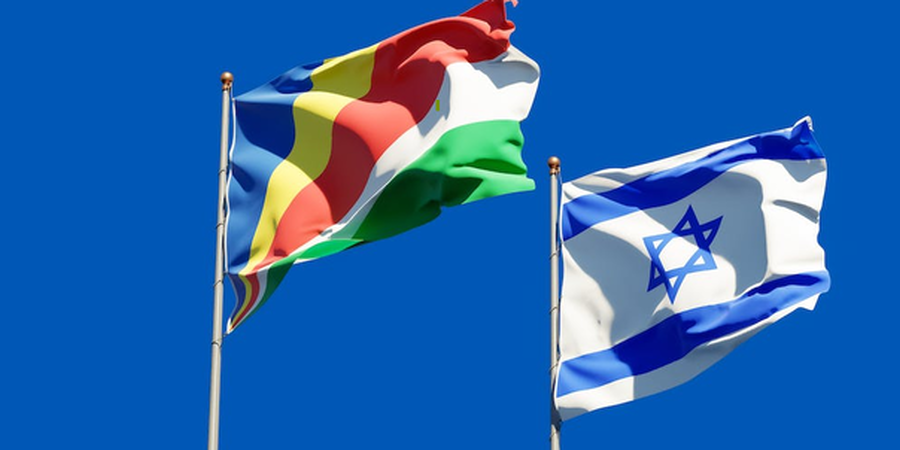Philadelphia, PA
- The Israel-Palestine conflict has remained a deeply entrenched and protracted dispute, generating immense human suffering and geopolitical tensions. However, despite the complexities surrounding the conflict, there are glimmers of hope and a growing recognition that lasting peace is both necessary and attainable.
In this article, we will explore various pathways to peace, highlighting approaches that have shown promise in reducing the tension between the two countries and fostering a future of harmony and coexistence.
Education Programs
One of the key pathways to peace in the Israel-Palestine conflict lies in the power of education. By nurturing understanding, empathy, and shared values among students and youth, education programs can play a pivotal role in transforming attitudes, breaking down stereotypes, and promoting peaceful coexistence.These programs aim to provide young people with opportunities to learn about the conflict's historical, cultural, and political complexities. By gaining a comprehensive understanding of the narratives and experiences of both Israelis and Palestinians, students can develop empathy and critical thinking skills necessary for constructive engagement.
Neta, a student of one such Jewish summer camp, remarks, "Since I returned from the Masa Israeli ( I Belong Israel) journey, I have become a more committed citizen, a more accepting person, a knowledgeable Jew, and a person who without a doubt is more motivated to defend and serve the state of Israel."
Moreover, education programs often emphasize the importance of dialogue and communication skills. Students are encouraged to engage in meaningful conversations with peers from different backgrounds, enabling them to develop empathy and build bridges of understanding. By providing a safe space for constructive dialogue, these programs empower young people to become ambassadors for peace within their communities.
Grassroots Initiatives
Grassroots movements play a significant role in promoting dialogue, reconciliation, and cooperation. They involve individuals, community leaders, and non-governmental organizations working together to create opportunities for interaction, mutual understanding, and collaboration.
The projects can range from cultural exchanges, sports programs, shared community activities, and cooperative economic ventures. The participation of individuals in these initiatives contributes to the humanization of the "other" and fosters empathy and understanding.
Historically, such initiatives have served as beacons of hope amidst conflict. One notable example is the Parents Circle-Families Forum, an organization founded in 1955 under the leadership of Yitzhak Frankenthal by Israeli and Palestinian families who have lost loved ones to the violence of the conflict.
This organization brings together bereaved families from both sides, providing a platform for dialogue, shared grief, and reconciliation. Through their joint activities, such as storytelling events and joint peace-building projects, they have demonstrated the power of human connection in transcending animosity and working toward reconciliation.
Another noteworthy initiative is the Seeds of Peace program, which brings together young Israelis and Palestinians, as well as individuals from other conflict-affected regions. Through a multi-faceted approach encompassing dialogue sessions, leadership development, and experiential learning, Seeds of Peace provides a transformative platform for young individuals to engage in meaningful dialogue and build lasting relationships across the divides.
Economic Collaboration
Historically, several treaties and agreements have been signed to facilitate economic cooperation between Israelis and Palestinians. One notable example is the Paris Protocol of 1994, which established economic ties and financial arrangements between the two parties. This protocol aimed to promote trade, labor movement, and fiscal coordination, laying the groundwork for mutual economic benefits.
Economic collaboration between Israelis and Palestinians has evolved significantly in the past years. The development of industrial parks and joint ventures have provided opportunities for cross-border business partnerships, benefiting both communities. Joint projects in sectors such as agriculture, tourism, and technology have helped create jobs, boost local economies, and foster greater interdependence.
However, promoting economic collaboration requires addressing structural barriers, such as restrictions on movement, access to resources, and trade impediments. Removing these barriers, enhancing infrastructure, and facilitating cross-border investments can create an environment conducive to economic cooperation and shared prosperity.
International Mediation
The Israel-Palestine conflict has long been a subject of international concern, prompting various efforts by the international community to facilitate mediation and dialogue between the parties involved.
Throughout history, numerous treaties, agreements, and diplomatic initiatives have sought to address the Israel-Palestine conflict with the assistance of international mediators. Notable examples include the Camp David Accords of 1978 and the subsequent Israel-Egypt Peace Treaty of 1979, which marked a significant breakthrough in establishing diplomatic relations between Israel and an Arab country.
Moving forward, international mediation efforts should prioritize inclusivity, ensuring that the voices and concerns of all stakeholders, including Israelis and Palestinians, are heard and considered. Additionally, sustained diplomatic engagement, coupled with effective confidence-building measures, can contribute to creating an environment conducive to successful negotiations and a just and lasting peace.
Conclusion
As we move forward, it is essential to remember that the pursuit of peace is a complex and ongoing process. It requires perseverance, flexibility, and an unwavering commitment to dialogue and non-violence.
It is only through collective responsibility and collective action that we can build a foundation for a future that transcends division and brings about lasting peace.


